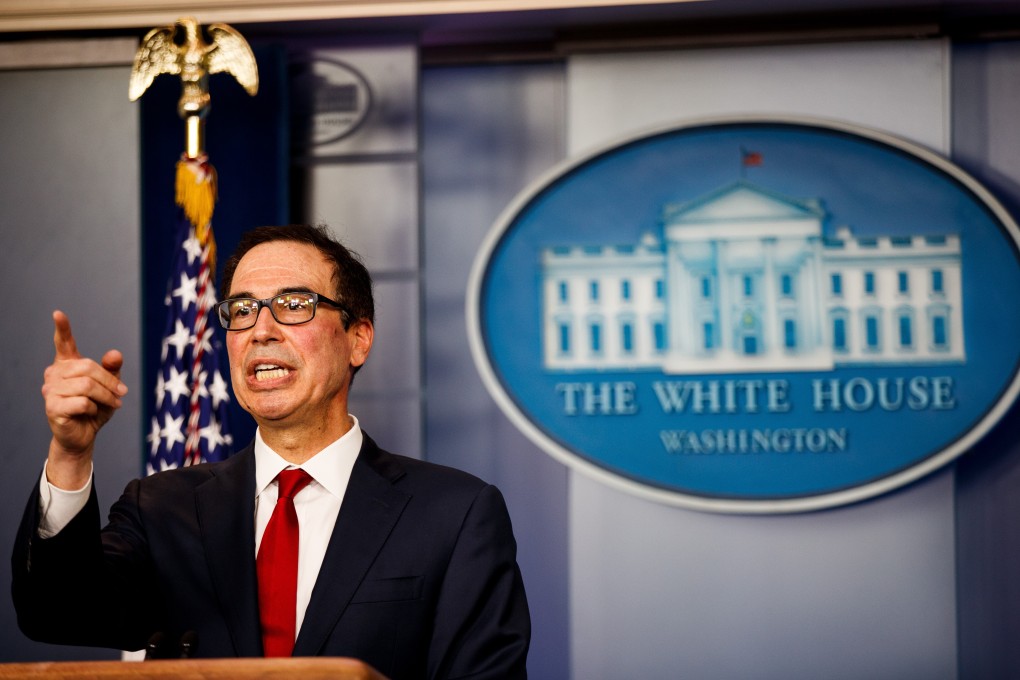Advertisement
China hits back at ‘currency manipulator’ label as Donald Trump ratchets up US trade war
- The People’s Bank of China called the United States’ move to label China a currency manipulator ‘wilful unilateral and protectionist behaviour’
- Markets slid on the potential further escalation in US-China tensions, with analysts predicting more tariffs to come
Reading Time:3 minutes
Why you can trust SCMP

China on Tuesday rejected the charge by the United States that it is manipulating its currency, and moved to contain the yuan’s slide in the foreign exchange market.
The Chinese currency slumped by more than 2.5 per cent over the past three days, weakening beyond the symbolic 7 yuan to the US dollar for the first time since 2009 on Monday.
This led the US Treasury Department to label China a currency manipulator, a move which could lay the ground for higher trade war tariffs and sanctions, analysts said.
Advertisement
The People’s Bank of China (PBOC) hit back at Washington’s move, arguing that “there is no such thing as currency manipulation [on the part of China]”. The central bank called the designation “wilful unilateral and protectionist behaviour”.

It added that the US move has “undermined global multilateral consensus on exchange rate issues” and will “generate serious negative impact on the stable operation of the international monetary system”.
Advertisement
Advertisement
Select Voice
Select Speed
1.00x